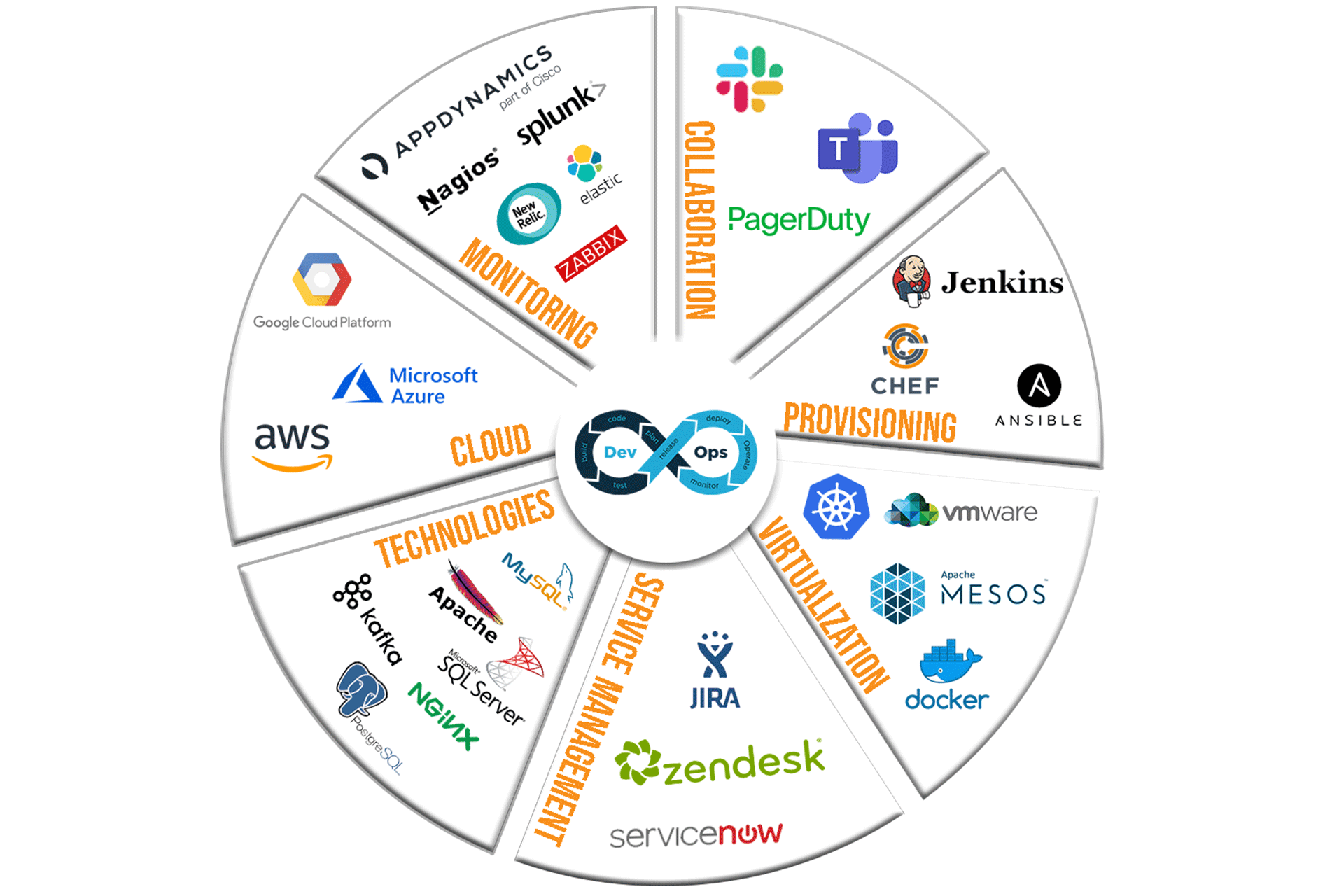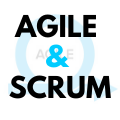Best Training in Bangalore
TIB Academy offers best DevOps training in Bangalore through two modes of training such as DevOps online training and DevOps classroom training. At the end of successful completion of DevOps course, certification is provided, for those who have completed all modules and projects and assessments
Description
DevOps is the most heard Buzz word in the tech industry. People want to become DevOps engineers but don't know where to start. Most beginners think that DevOps is a technology or tool or a programming language that they can learn and become a DevOps engineer. But DevOps does not work like that. DevOps is a mind-set or a way of working for an organization so that new features reach to the users as quickly as possible and smoothly too.
DevOps is the combination of constructive practices and tools that stimulate the ability of an organization to deliver the products and services at a faster pace, serve their customers in the best way and compete effectively in the market. It evolves and improves the products with high performance comparing the organizations using traditional software development and infrastructure management processes.
As one of the best DevOps training institutes in Bangalore, TIB Academy offers DevOps courses that will let the student completely utilize its core concepts, emphasizing communication & collaboration between product management, software development and operations professionals. Choosing this DevOps course at our DevOps training institute in Bangalore Marathahalli, gives you complete theoretical and practical knowledge about Git, Jenkins, Selenium, Docker, Puppet, Chef, Ansible, Nagios, Elk Stack , Splunk and AWS effectively with practical examples and case studies making it one of the most practical learning.
Our TIB Academy offers two modes of training such as online DevOps course in Bangalore and classroom DevOps training in Bangalore. The students choose their preferred mode of training. TIB Academy provides coaching by highly qualified DevOps professionals who have years of industry experience. The students are provided with course materials & case studies which are prepared by the DevOps Engineer.
DevOps is the combination of constructive practices and tools that stimulate the ability of an organization to deliver the products and services at a faster pace, serve their customers in the best way and compete effectively in the market. It evolves and improves the products with high performance comparing the organizations using traditional software development and infrastructure management processes.
As one of the best DevOps training institutes in Bangalore, TIB Academy offers DevOps courses that will let the student completely utilize its core concepts, emphasizing communication & collaboration between product management, software development and operations professionals. Choosing this DevOps course at our DevOps training institute in Bangalore Marathahalli, gives you complete theoretical and practical knowledge about Git, Jenkins, Selenium, Docker, Puppet, Chef, Ansible, Nagios, Elk Stack , Splunk and AWS effectively with practical examples and case studies making it one of the most practical learning.
Our TIB Academy offers two modes of training such as online DevOps course in Bangalore and classroom DevOps training in Bangalore. The students choose their preferred mode of training. TIB Academy provides coaching by highly qualified DevOps professionals who have years of industry experience. The students are provided with course materials & case studies which are prepared by the DevOps Engineer.

- Learn AWS DevOps Certification Course in 60-70 hours of enticing practical training sessions
- Gaining practical knowledge through module-wise case studies and projects
- Instructor led online classroom training and flexible training sessions
- Build Application stack using Docker Compose files with hands-on exercises
- Use StatefulSets to deploy a Cassandra cluster on Kubernetes
- How to use Docker, Compose and Kubernetes for better software building and testing
- Hands-on with best practices for making Docker files and Compose files like a Pro!
- Automatically build and deploy your own Helm Charts using Jenkins
- Automate provisioning and web server deployment
- Implementing systems that are highly available, scalable, and self-healing on the AWS platform
- Developers can learn how to develop and deploy containerized modern web applications with a microservice approach
- DevOps course is designed for students and professionals interested in advancing their career in the Continuous Integration & Continuous Deployment or to become “A DevOps Engineer
- Professionals through Corporate training sessions
To do DevOps Certification in Bangalore, there is no prior knowledge needed, but a background in development / operations / cloud / Linux / networks will definitely help
Key Features

Instructor Led Sessions

Lifetime Access

Real Life Case Studies

24x7 Expert Support

Assignments

Certification
Training in Bangalore Details
Cloud Computing
- What is Cloud Computing
- How Cloud Computing are helpful
- Cloud's role in DevOps orchestration
- What is AWS
- Use cases in AWS
- Companies using AWS and Market tends
- Different Services offered in AWS
- Use case: - Highly available fault tolerant systems
- Understanding availability zone
- region
- Creating your own account in AWS
- Creating a VPC
- subnet
- network gets way
- Running your own EC2 instance
- Connecting in EC2 and installing https in EC2
- S3
- Over viewS3
- SNS. Cloud watch
- Understanding the Serverless (Lambda)
Introduction to DevOps
- DevOPs History and evolution of DevOps
- What is the market trend of DevOps
- Which back ground people can switch to DevOps
- Some typical tool stack for DevOps Jobs
- How to get maximum from the course
- Client-Server and Distributed Version control system
Introduction to Virtualization
- What is Virtualization?
- History of Virtualization
- What is Hypervisor?
- Types of Server Virtualization
- Benefits of Virtualization
- Important Virtualization products
AWS Cloud Technical Essentials
- Amazon EC2
- Amazon Elastic Load Balancer
- Amazon Route 53
- Amazon VPC
- Amazon Simple Storage Service (Amazon S3)
- Amazon Elastic Block Store (Amazon EBS)
- Amazon Content Delivery Network (Amazon CloudFront)
- Amazon Relational Database Service (Amazon RDS)
- Amazon DynamoDB
- Amazon ElastiCache
- Amazon Simple Notification Service (SNS)
- Amazon CloudWatch
- Amazon CloudTrail
- Amazon Simple Email Service (Amazon SES)
- AWS Identity and Access Management (IAM)
- Amazon Command Line Interface API
- S3-Browser
Linux Administration
- Storing Data in the cloud (S3 & Glacier)
- Lab: Create an S3 Bucket
- Lab: S3 Version Control
- Lab: S3 Lifecycle Management & Glacier
- CloudFront CDN
- S3 Security & Encryption
- Storage Gateway
- Import Export
- S3 Transfer Acceleration
Transparently scaling to meet load variation
- Elastic load balancer (ELB) and health check
- Auto-scaling and Auto-scaling Group
- AWS CloudWatch
- Placement Group
- Lab
Relational Database Service (RDS)
- Creating Database Instances and scheduling for Backup
- Taking snapshot of Database
- Create read replica RDS
- DynamoDB lab
Networking on Cloud(VPC)
- Virtual Private Cloud(VPC)
- Public and Private Subnet
- NAT Gateway
- LAB
Route53
- Route53
- DNS Concept
- Lab
Cloud Formation
- Scripting Infrastructure
- Sample CF Demo
Git
- Advantages of Git over SVN
- Git User trends
- Different Git tools (GitDesktop. Kraken)
- Git Installation and Configuration
- Setting up Git Bash and Git UI
- Creating first repository: Local
- Git commands: add
- commit
- push
- status
- history
Branch
- Branch why what? Understanding Master
- Creating a Branch
- Merging a Branch
- Resolving Merge conflicts
- checking the difference
- Understanding the tags: Modifying
- undoing
- deleting and discarding
JUnit
- Use Case of Unit Testing
- Different kind of Unit Testing
- What is JUnit
- Writing a Simple JUnit Test
- TesNG introduction
- Write a Unit Testing Case in your Favourite language.
Maven
- Use Case in Maven
- Ant vs Maven
- Maven installation and Configuration What is Maven Central
- Dependency Management why and How
- Introduction to POM
- Build lifecycle
- Maven repositories Maven plugins
- Using a POM file to run unit testing(Jenkins)
- Multi-module POM
- dependency hierarchy
- Artifactory management
- Maven Release and Snapshot
- Assignment- Create a Maven Hello world Java Project
- Run the Unit testing and and create the artifact for that
- Use Case (How Artifactories are managed)
- Artifact Lifecycle
- Basic use of Sonatype Nexus
- Artifactory Live demo
- Use Case WebServer Deployment in DevOps
- Architecture
- Different types of Webserver
- Proxy servers
- Mail Server
- Installation of Tomcat
- Manual Deployment
- Deploying a Web application using Maven
- Idea about Automated Deployment using Continuous Integration
- Create a Tomcat Server and Deploy the application manually
- Create a Tomcat Server and Deploy the Application Using Maven
- Benefits of Code Profiling tool
- Use case of Code Profiling tool
- Different kind of Code quality tools
- Over view of Sonar
- Installation of SonarQube
- Installation fo Code Analyser
- Sonar profiles
- Running Sonar for a project
- Configuring SonarQube for one Sample Java project.
Jenkins
- Why Jenkins ?
- What is Continuous Integration and Continuous Deployment (Use Case1)
- Jenkins installation and Configuration
- Running Jenkins as windows service
- Deploying Jenkins in Tomcat Server
- Jenkins Global Configuration
- Building your first Hello world job
- Jenkins User Management
- Jenkins Plugin management
- Jenkins SCM configuration (Git SVN)
- Understanding the Jenkins workspace
- Build
- pre build and post build job
- Jenkins Unit testing
- Automation testing
- Mail notification
- Jenkins Reporting
- Matrix and trend
- Jenkins remote executor
- Master Slave configuration in Jenkins
- Jenkins Most used plugin
- Advanced Reference
- Jenkins pipeline plugin
- Groovy scripting
- Scriptler
- Jenkins Parameterized build
- Environment inject plugin
- Use of Jenkins environment variables
- Deploying a specific revision
- Customizing the Jenkins UI
- Project based Matrix plugin
- Parallel Execution
- Configuring Jenkins Hub and Node in the cloud (AWS)
- Configuring a Selenium Desktop node with a Linux Server (AWS)
- Case Study
- Real time implementation of Automated role back
- Multi branch Deployment.
- What is Virtual Machine
- Why we need it
- What is Container
- Difference between Containers and Virtual Machine
- What is Configuration Management
- Configuration Management Challenges
- Configuration Management in DevOps Ecosystem
- Some tools
- Trends
Ansible
- What is Ansible
- Advantages of Ansible
- Environment Provisioning
- Configuration Deployment
- Installation of Ansible (AWS)
- Modules
- Playbooks and Writing a Playbook
- What is Monitoring
- Why we need monitoring
- Different tools of monitoring
- What is Nagios
- Nagios Architecture
- Different components of Nagios
- A typical Nagios Dashboard
- Installation and Configuration
DOCKER
- What is Container and Containerization
- Different types of Containers
- DOCKER: What why how ?
- Use Case 1 (Why Docker)
- Docker installation
- Docker VS Vagrant
- Docker Run commands
- Advanced Docker
- run commands
- Docker volume persistence
- Overview of Docker Compose
- Docker Hub
- Creating your own image
- Advanced reference
- Create a Docker container to run Jenkins
- Create a Docker container to run a CI/CD pipeline
- Docker Installation and Configuration
- Major Docker Components
- Container Management Running Containers
- Dockerfile
- Working with Registries
- Docker Port Forwarding
Puppet
- Use case 1 (Why puppet)
- Puppet installation and configuration
- Resource implementation
- Managing files and executing programs
- Testing your code Using Puppet Languages
- Variables Numbers and Strings
- Facts
- control flow
- Regex
- Loops
- Resource Processing
- Advanced Course
- Puppet Modules
- Define QA environment
- Changing Base Module path
- Separation of Data from Code
- Introduction to Hiera
- Hiera Backend creation in Puppet
- Variables and Function lookups
- Using Puppet modules
- Puppet Forge-Server- GitHub repo.
Prepare Yourself to Find the Best DevOps Jobs and Placements in Bangalore
Our DevOps training in Bangalore with placement assistance helps you to build your resume to make you a job-ready candidate at the end of the training.Our Admin team is ready to help you get the dream job in your field. Contact us at 951-333-2301 for more support and details.
Our support team is eager to connect with you and
learn more about your needs.
Find out why we are the leading choice to help boost your career
 Prepare to get an IT job ready in 8 weeks
Prepare to get an IT job ready in 8 weeks Trained 7000+ professionals and counting
Trained 7000+ professionals and counting Experienced Provider: Operating Since 2008
Experienced Provider: Operating Since 2008 500+ Trainer for Global Businesses
500+ Trainer for Global Businesses






